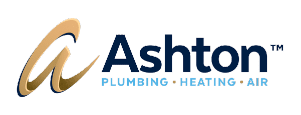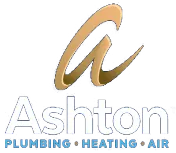
Do you have an energy efficient air conditioning system? When it comes to modern HVAC systems, energy efficiency plays a huge role in both the functionality and lifespan of your set-up. Choosing the most energy efficient AC will save you money, reduce the strain on the system, and protect the planet.
We’ve put together a simple guide that shows you how to know if you’re using an energy efficient air conditioning system, and what to do about it if you’re not. Use this guide to evaluate the efficiency of your system and, if it’s time to replace your AC, follow the steps below to choose the most energy efficient air conditioning system to meet your needs!
How to Know if You Have an Energy Efficient Air Conditioning System
There are a few simple indicators of how well your HVAC (heating, ventilation, and air conditioning) system works. But how do you know if your system is truly working in the most cost-effective and energy efficient way? Here are four ways to tell.
- Age and Maintenance History
New systems have been designed with energy efficiency in mind, using cutting edge technology to reduce energy usage. If your system is more than 10 years old, its operational costs are likely hard on the environment and your utility bill. You could potentially save 20-40% of your cooling costs by replacing it with a newer, more efficient model.
- Overall System Performance
Frequent repairs, high humidity in your home, uneven cooling, and strange sounds or odors are all indicators of substandard functioning.
- High Utility Bills
If your monthly electricity bills are high or increasing over the years, this is likely a sign that your HVAC system is wasting energy, not conserving it.
- SEER Rating
The SEER (Seasonal Energy Efficiency Ratio) is a measurement of how much energy your air conditioning system uses over a typical season and how well it converts this energy into cooling power. The higher the SEER ratio, the more efficient the system. The SEER ratio can be found in the user manual, or on the unit itself. A ratio of at least 14 is recommended for a system to be considered energy efficient, with ratings going all the way up to 22.
Your Guide to Choosing an Energy Efficient Air Conditioning System
If you’ve used the assessment tools above and it’s time for a new cooling system, here are a few things to look for to set yourself up for success.
- Look for an Energy Star
The best new air conditioning system have an Energy Star rating, which means it has been recognized as energy efficient. A central air conditioning system must have a SEER ratio of at least 14 to receive an Energy Star.
- Find a High-Quality Manufacturer
Choose a manufacturer that has a good reputation for quality and durability. If you’d like some recommendations, call the experts at Ashton. We’d be happy to introduce you to some of the most energy efficient and effective systems on the market.
- Consider Smart Technology
Wi-Fi enabled or smart thermostat features allow you to use digital technology to adjust the temperature setting from your phone. With this, you can schedule on/off times, and turn the AC off or bump the temperature up a few degrees if you’re not at home.
- Work with a Reliable Professional
Along with finding the best energy efficient model to meet your needs, it’s important to have your system accurately installed and to have a regular maintenance plan. If you’re ready to move forward with this, give us a call at Ashton, we’d love to help you out.
Still have questions? Find more answers on our blog: Everything you Need to Know Before Buying a New Air Conditioning System.
How to Make Your Current AC More Efficient
If it’s become clear that your current system isn’t operating at maximum efficiency, but you’re not ready to replace it, here are a few things you can do to keep your AC working as efficiently as possible. For a more detailed list, visit our blog: The Top 5 Ways to Make Your Air Conditioner More Energy Efficient.
- Clean and Change your Air Filters Regularly
Filters keep your AC unit running smoothly. A clean, well-functioning filter will provide good air circulation and prevent dust and debris from blocking your vents. It’s a good idea to clean permanent filters, or change disposable ones every few months, possibly more if you have children or pets.
- Use Ceiling Fans at the Same Time as Your Air Conditioning System
Naturally, cool air will settle, as opposed to circulating. Using existing ceiling fans, or installing them throughout the house, will take the burden off your air conditioning system and disperse cool air through your space in a much more efficient way.
- Schedule Regular Maintenance
Cleaning the components, fixing electrical connections, and addressing anything that needs updating from general wear and tear will keep your system running at its maximum efficiency and minimize your electrical costs. Studies show that regular air conditioning maintenance can help your unit maintain 95% of its original efficiency.
We hope these tips will help you find the most energy efficient air conditioning system to meet your needs, and stay cool and comfortable this summer!

